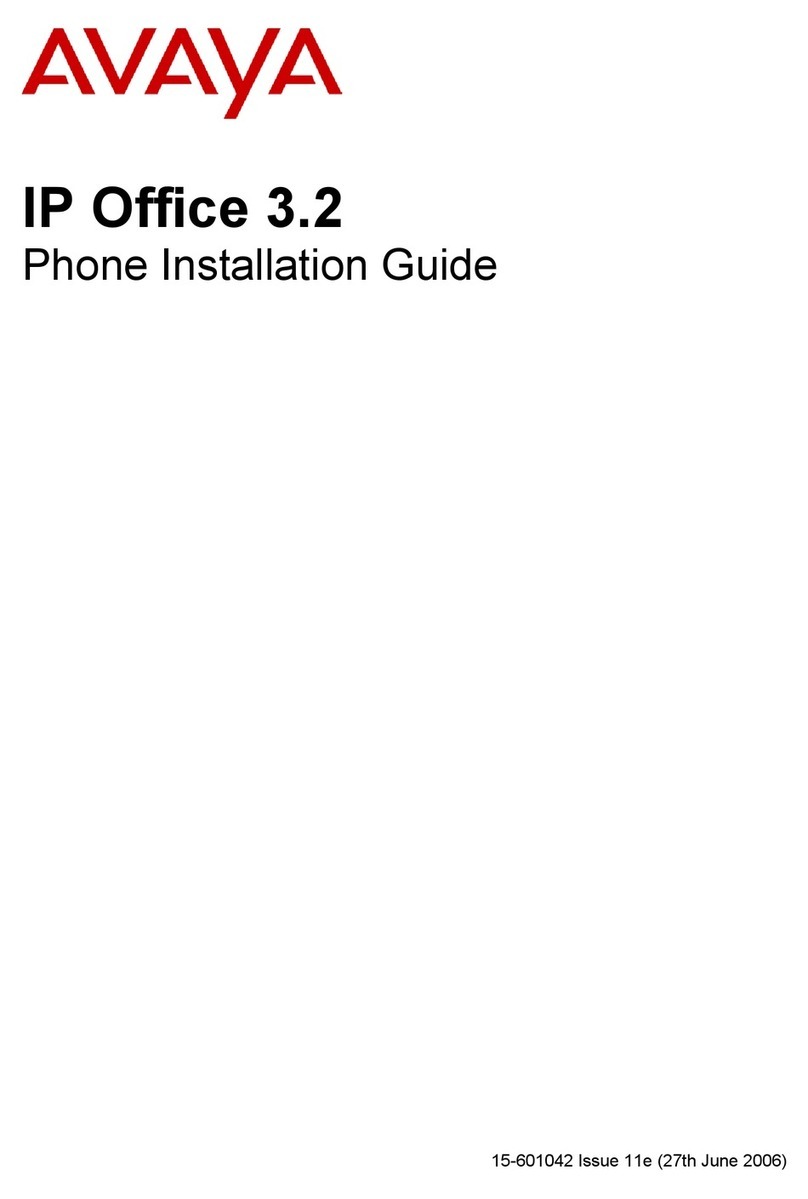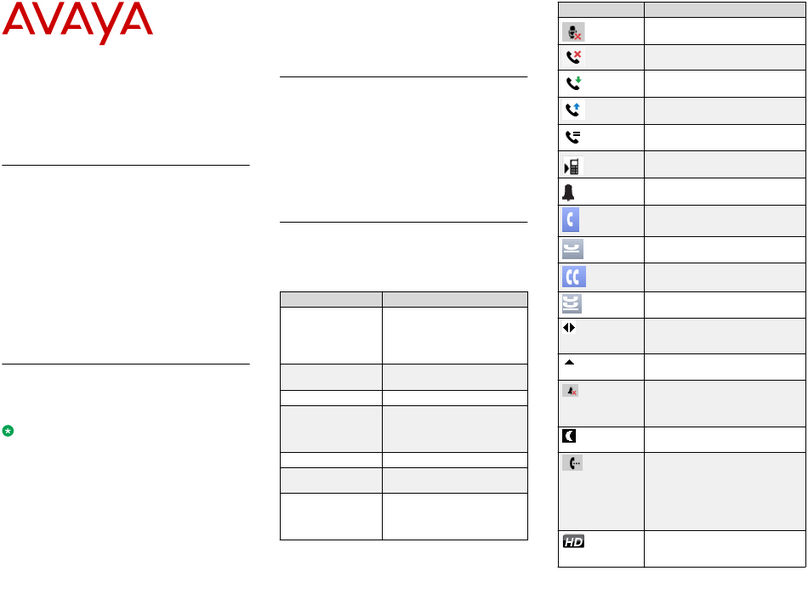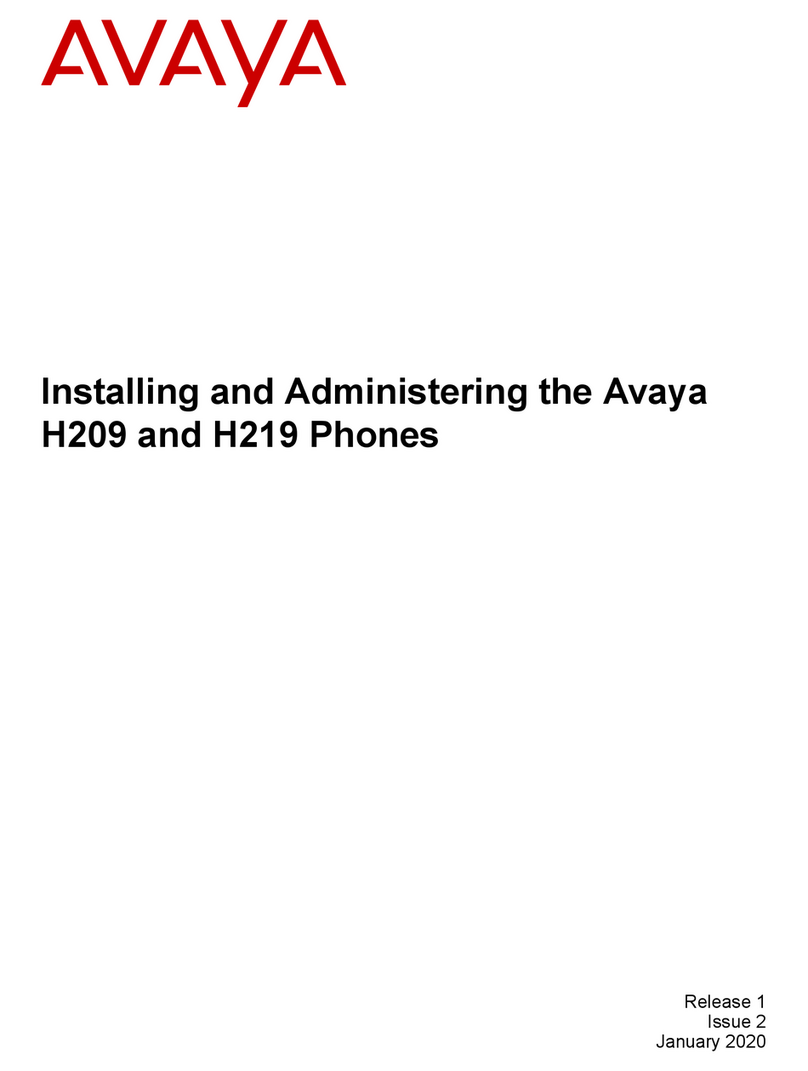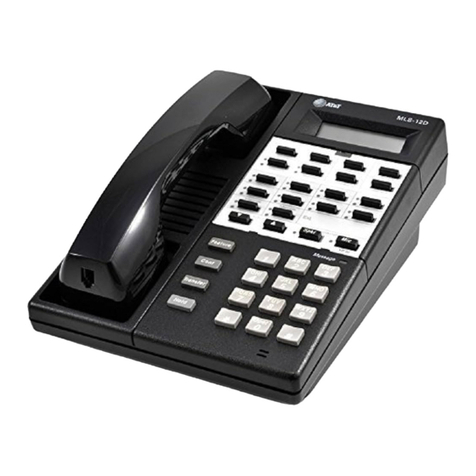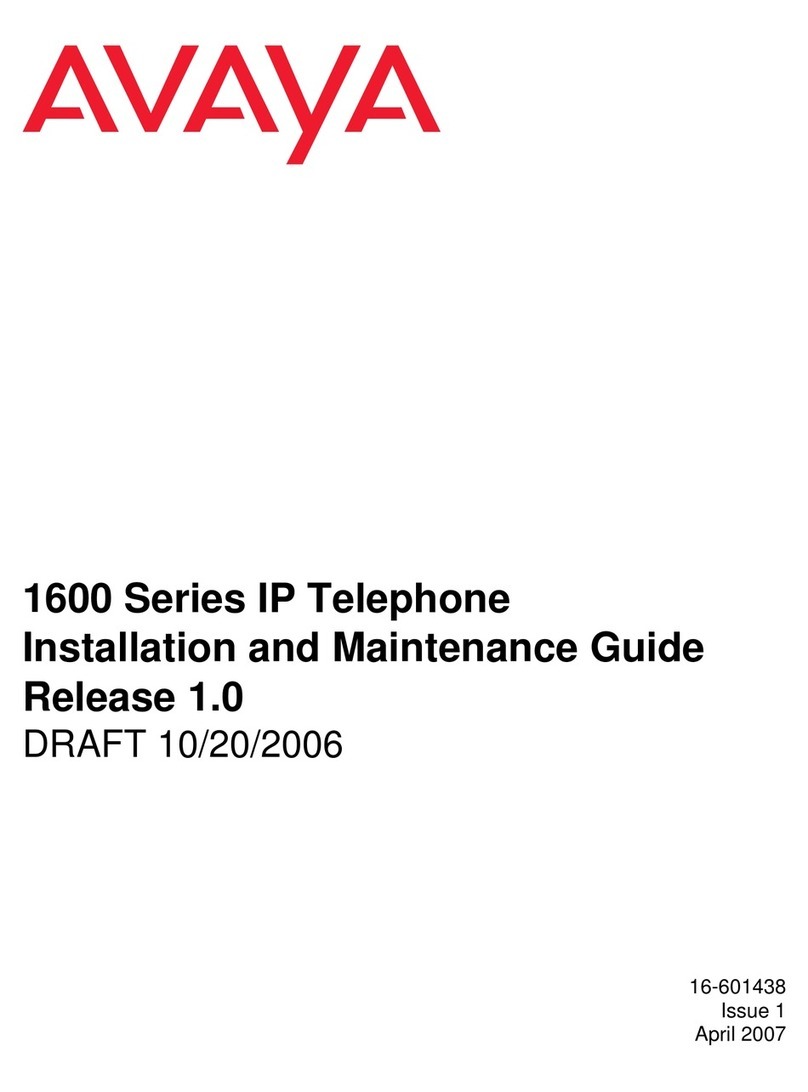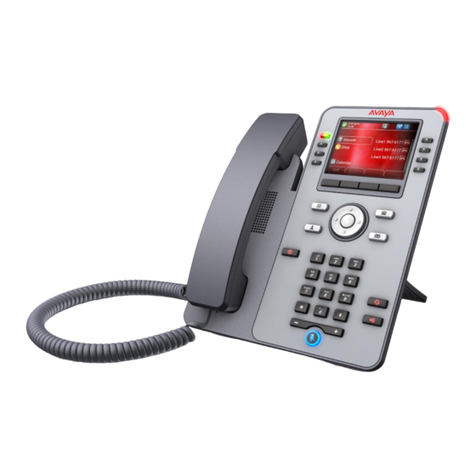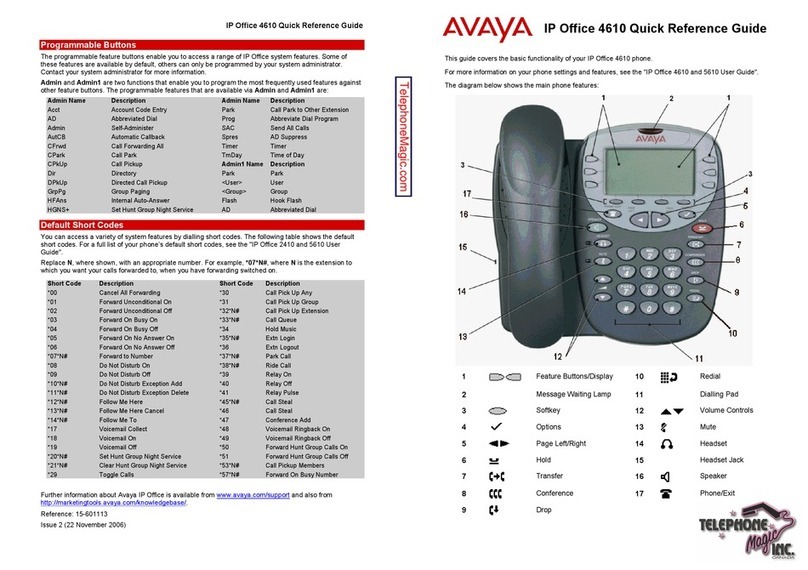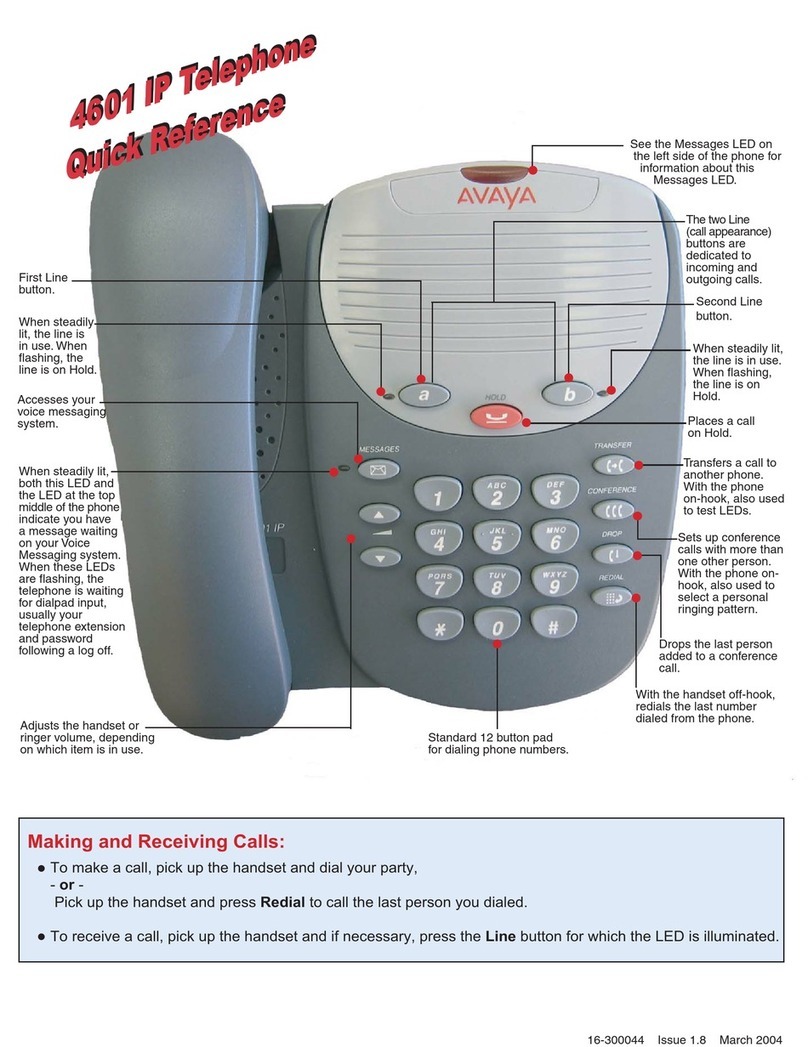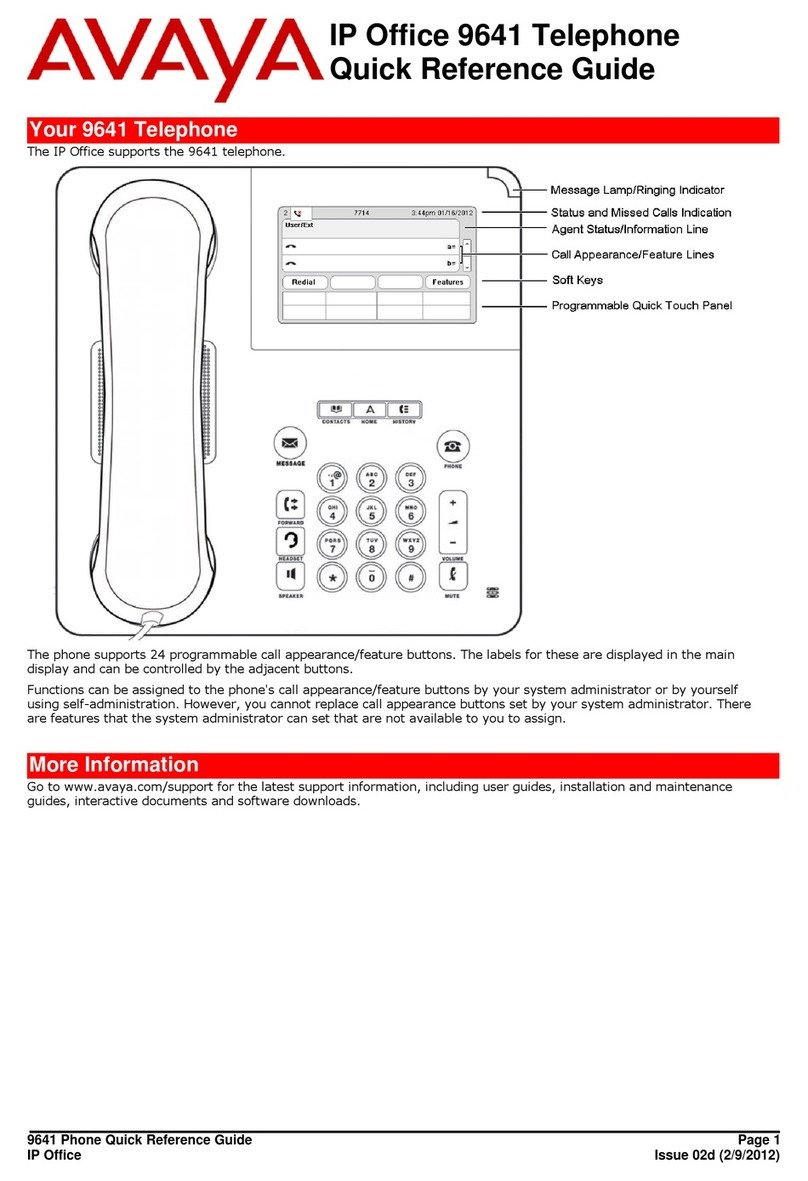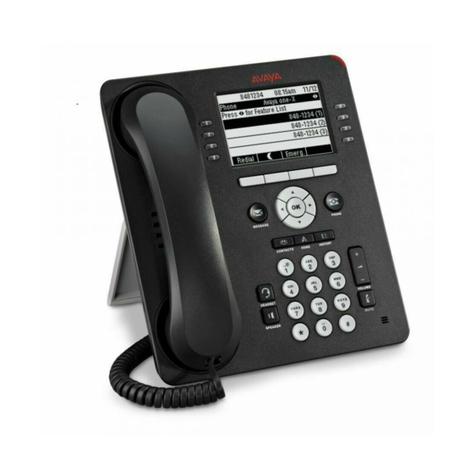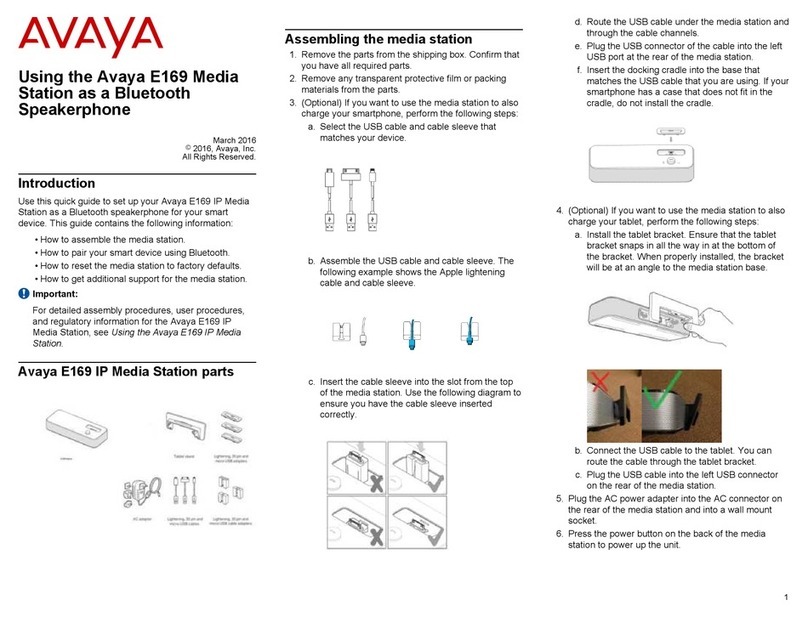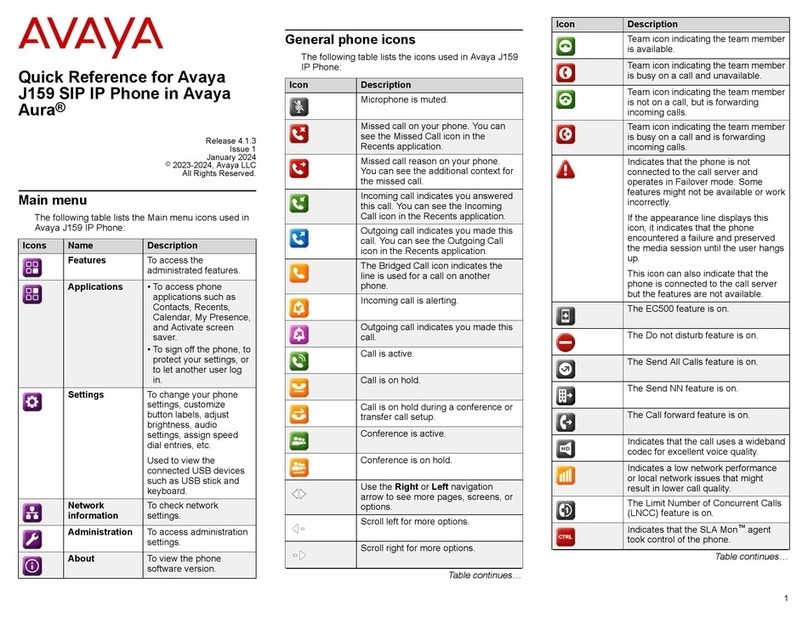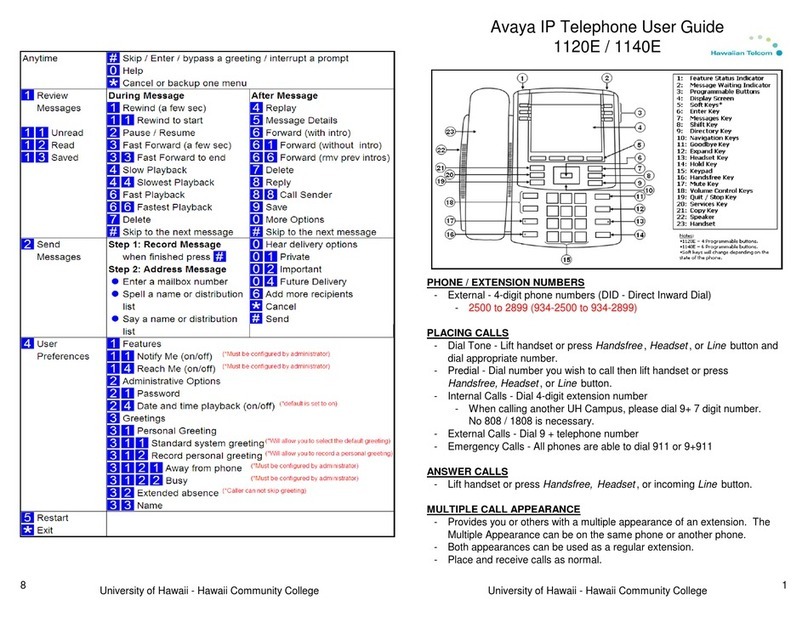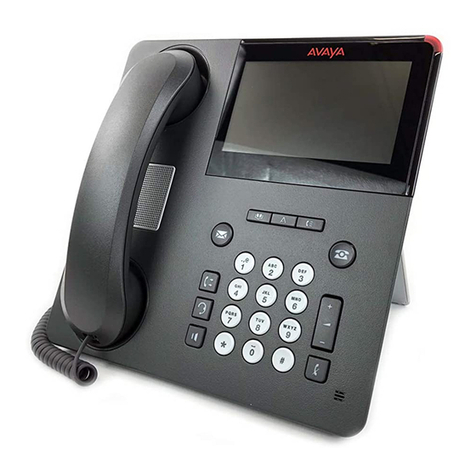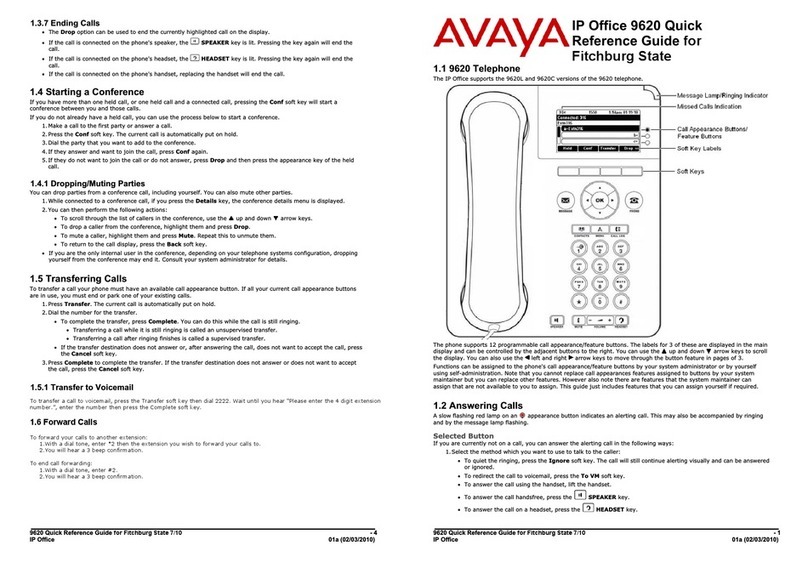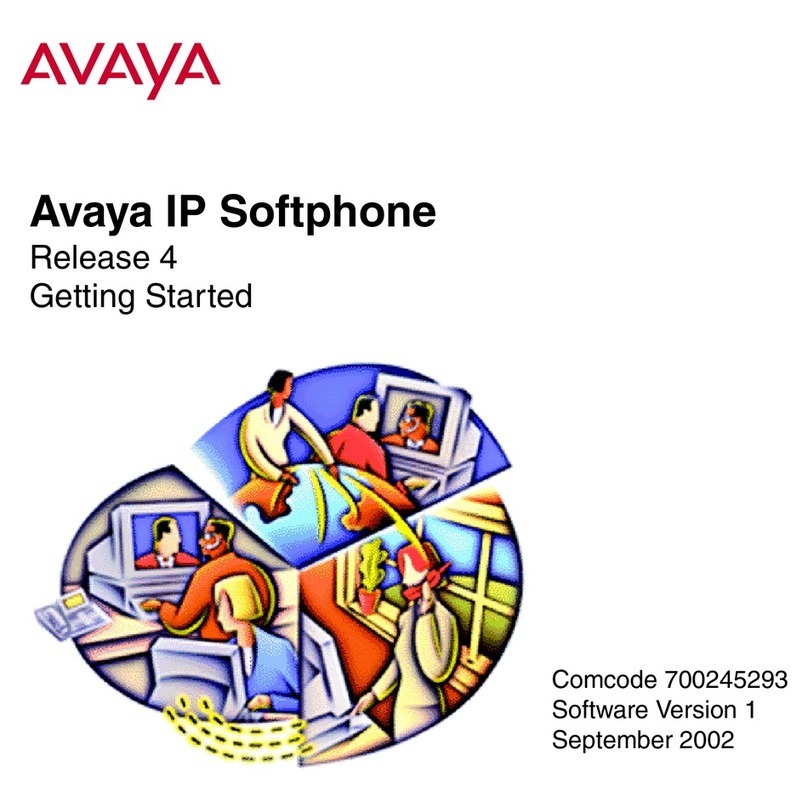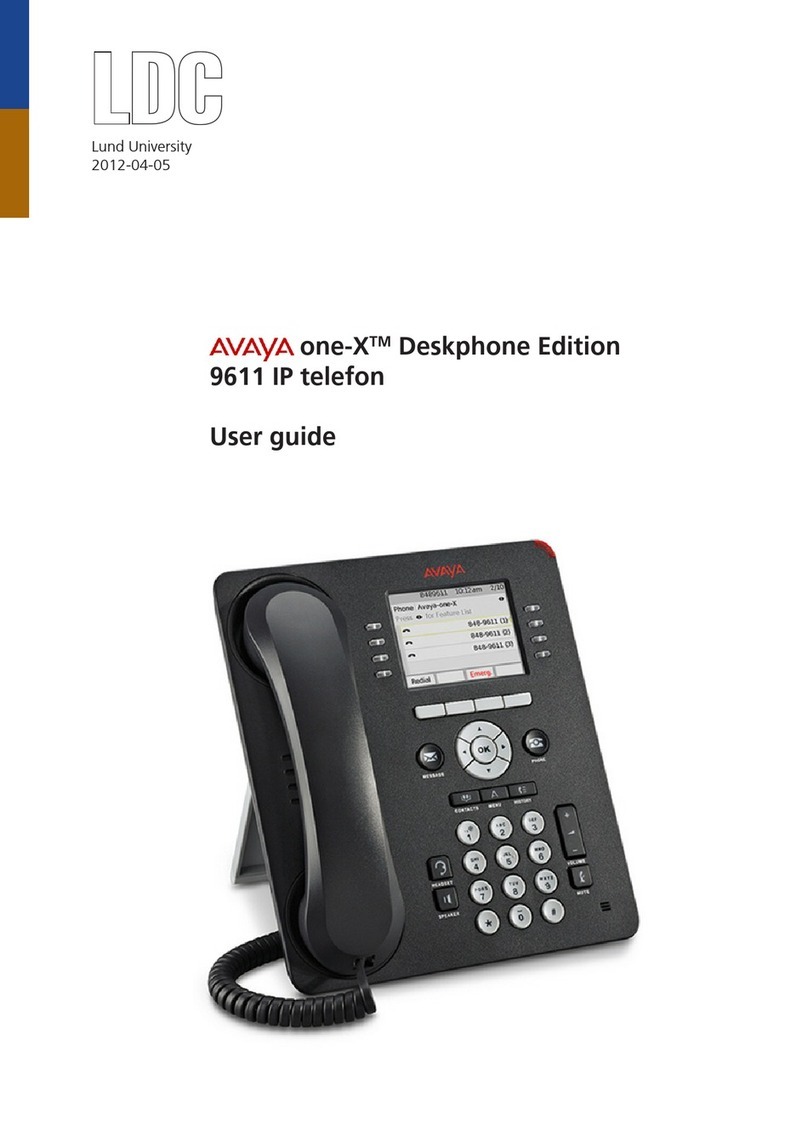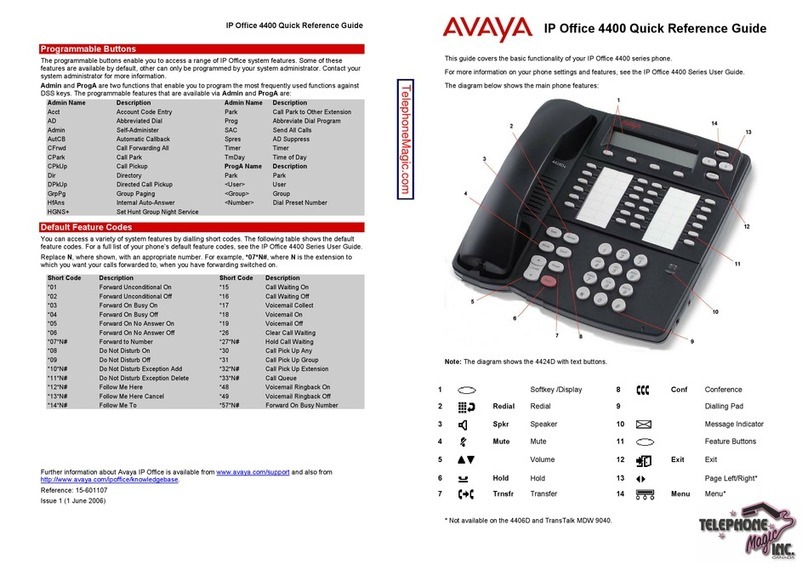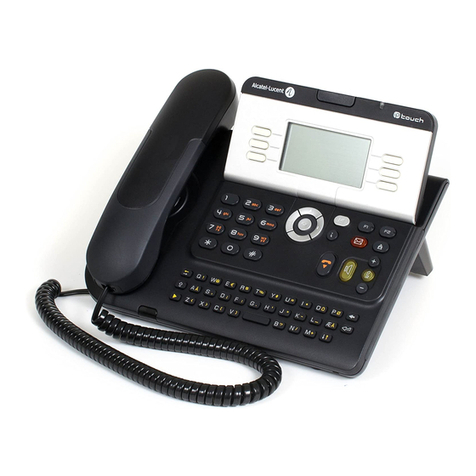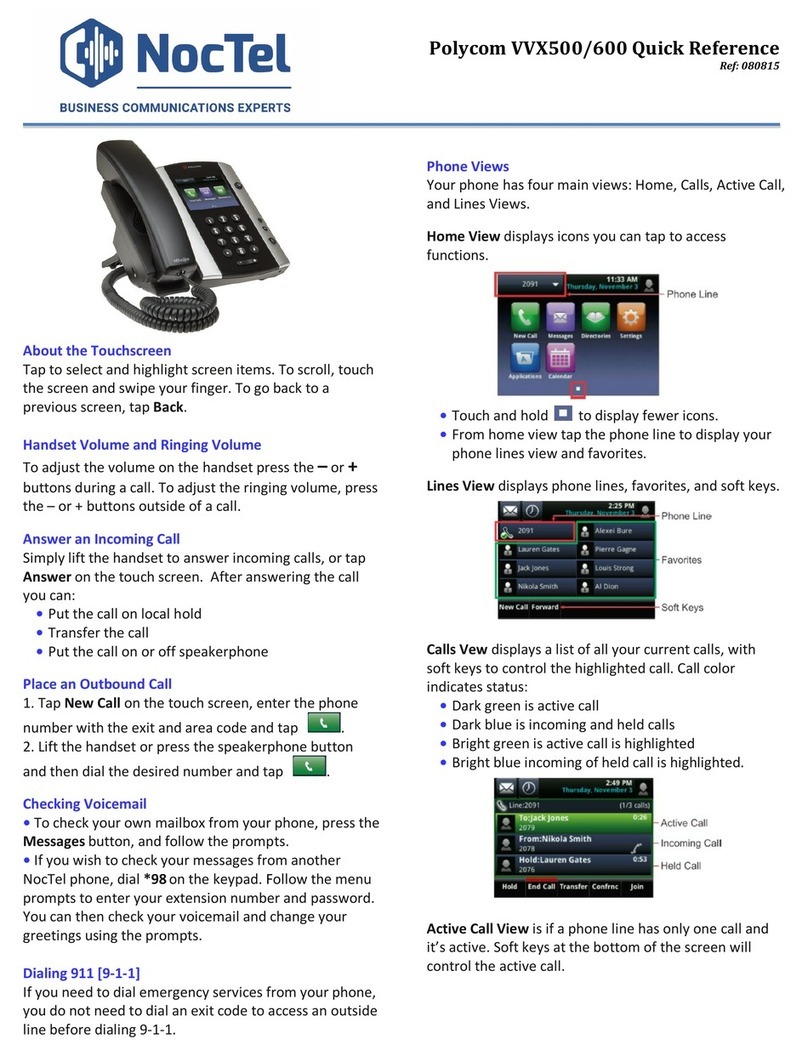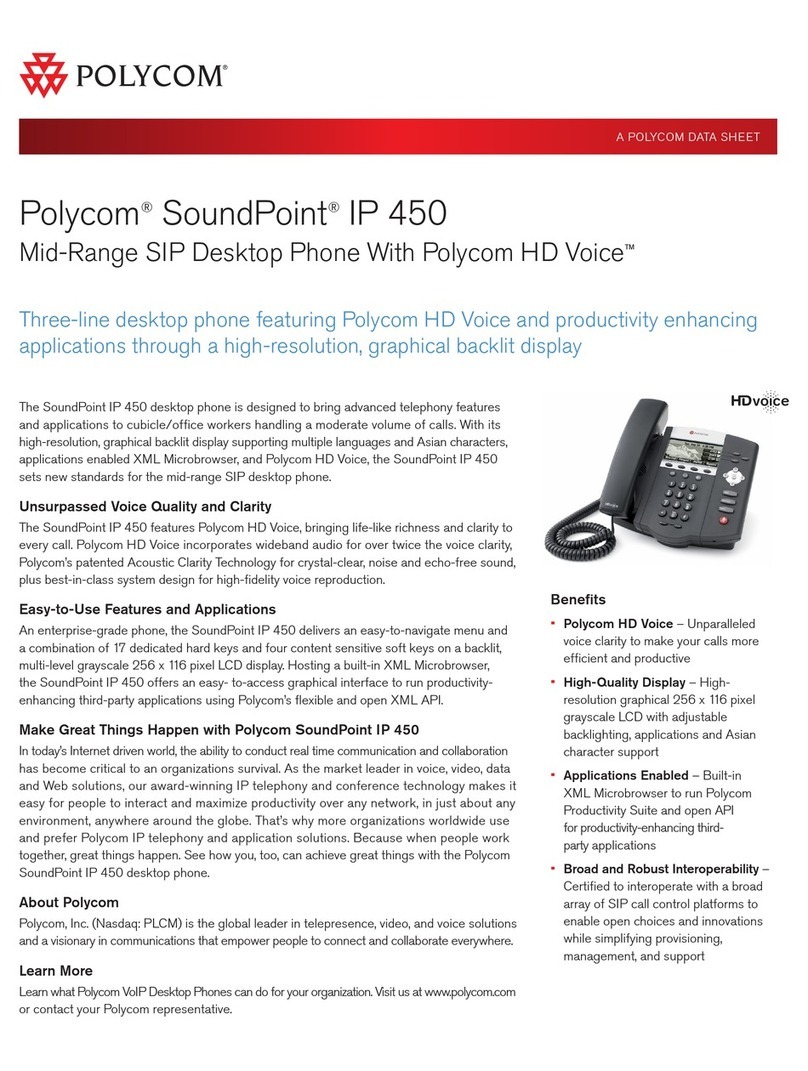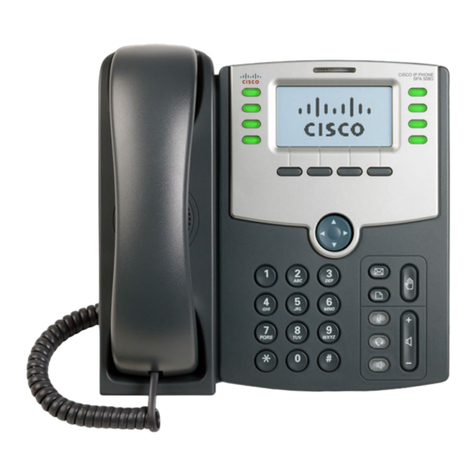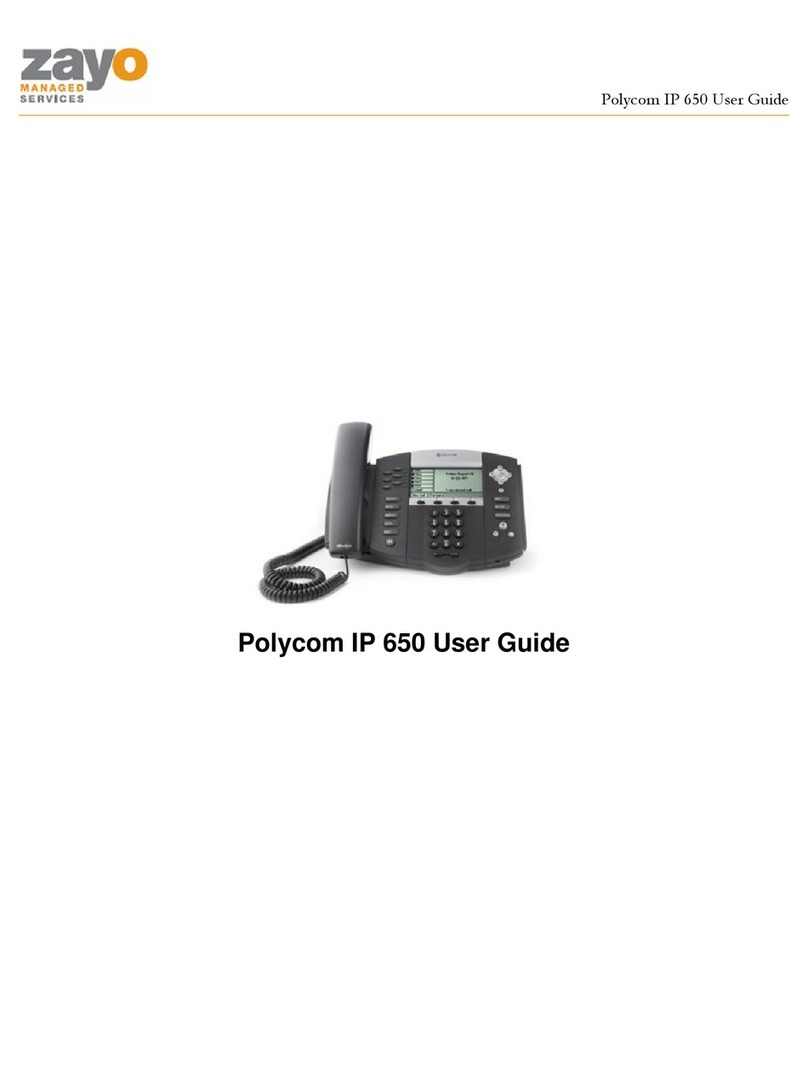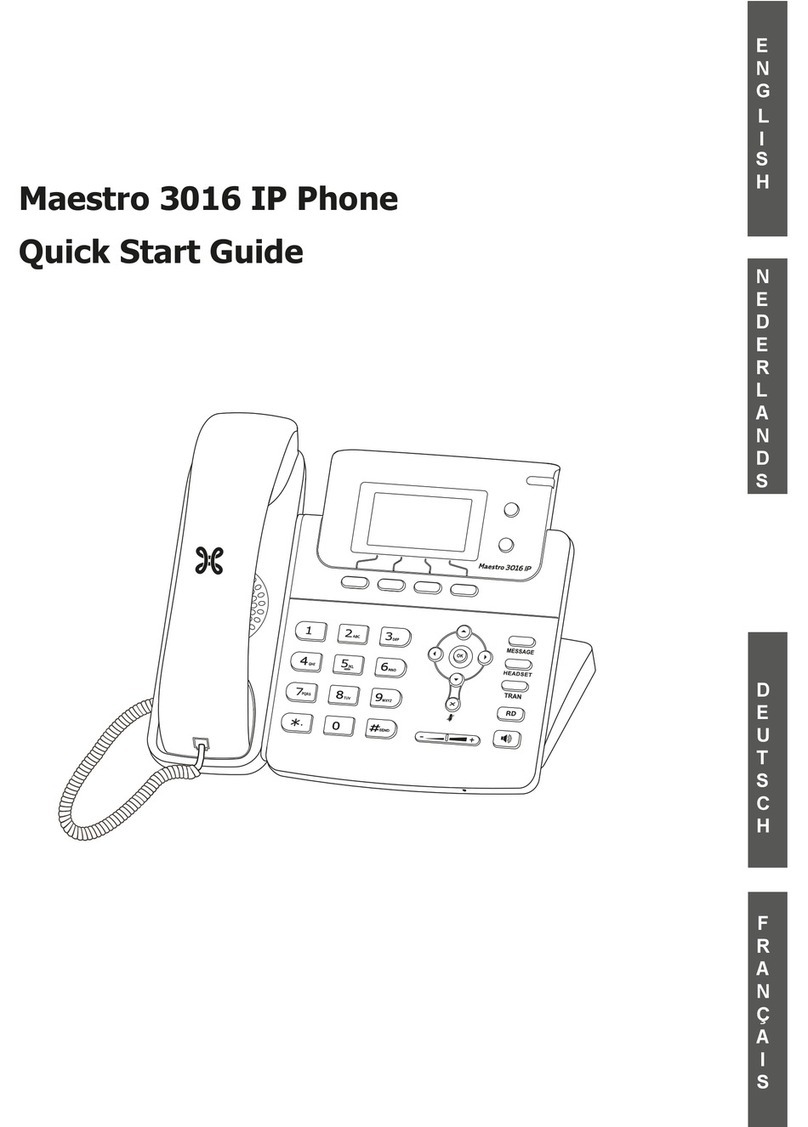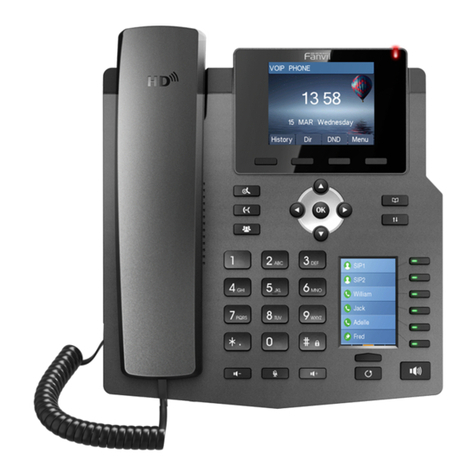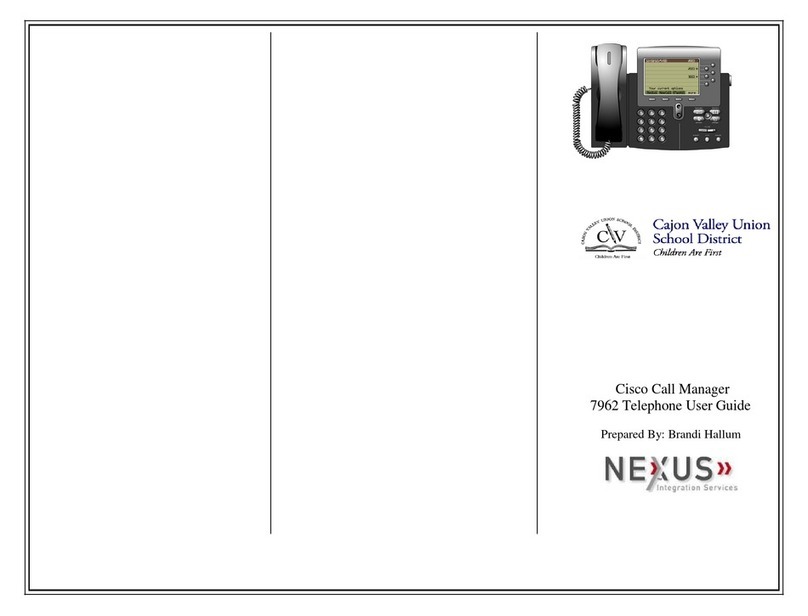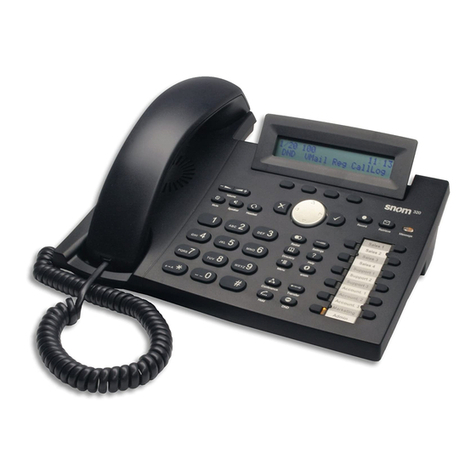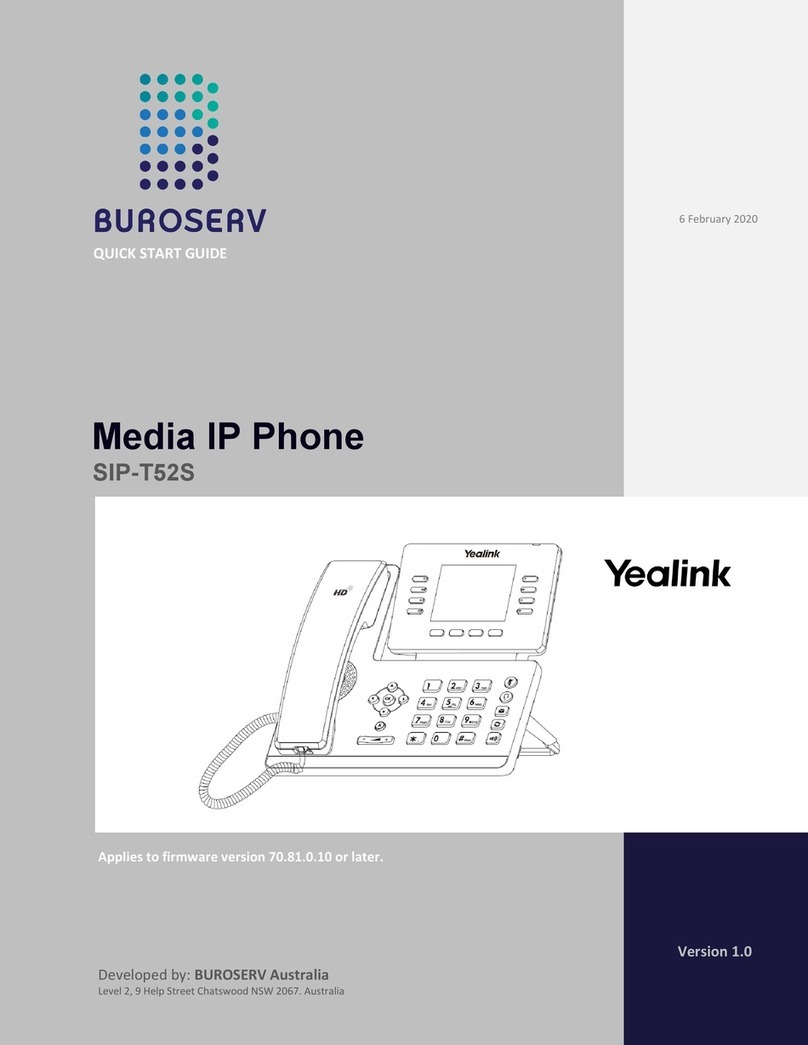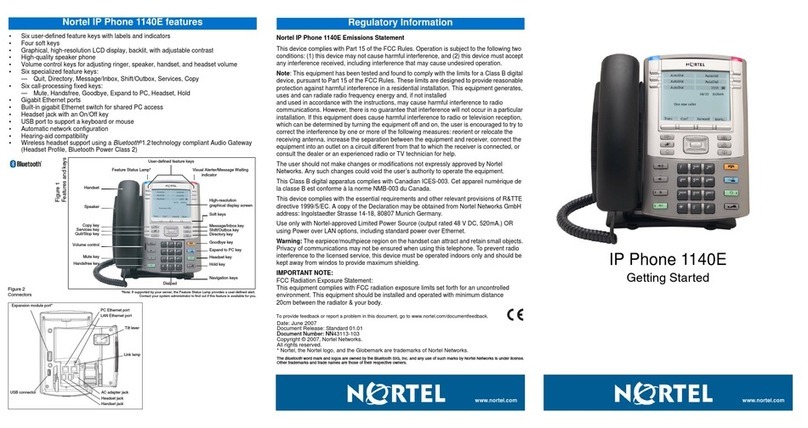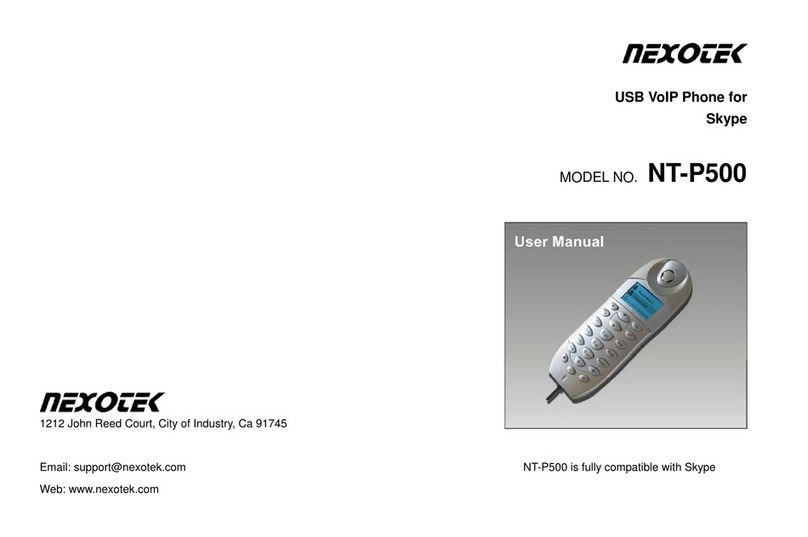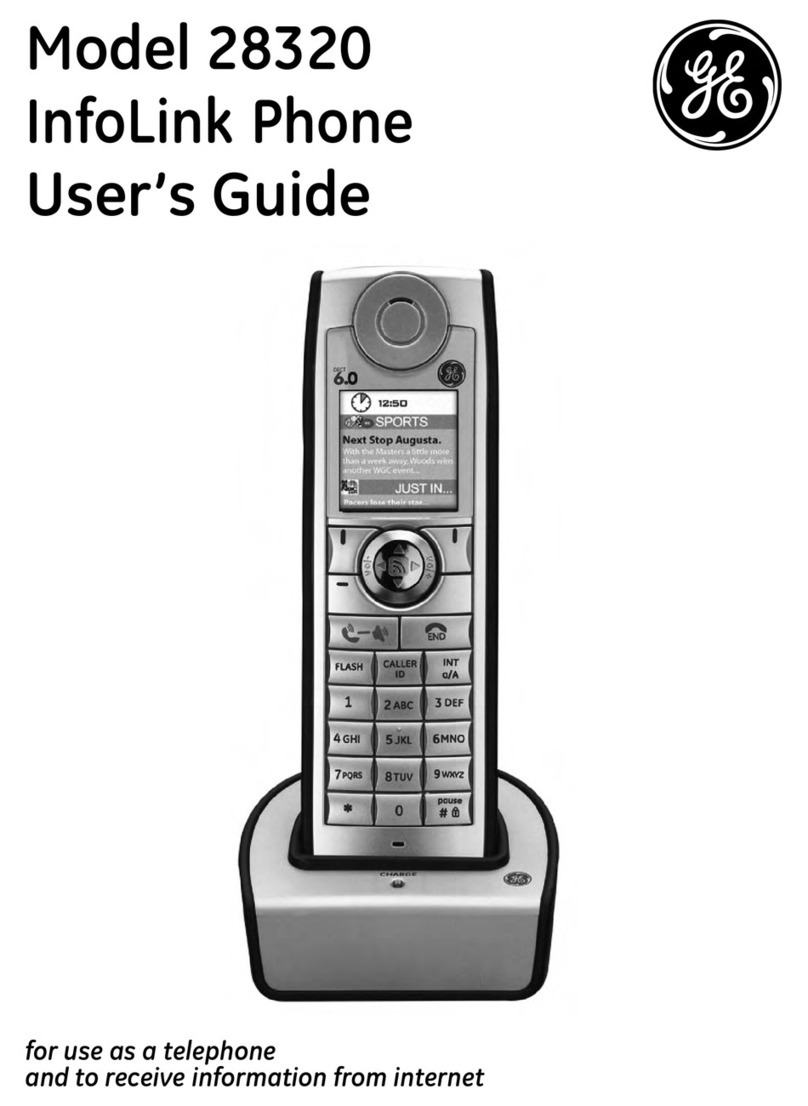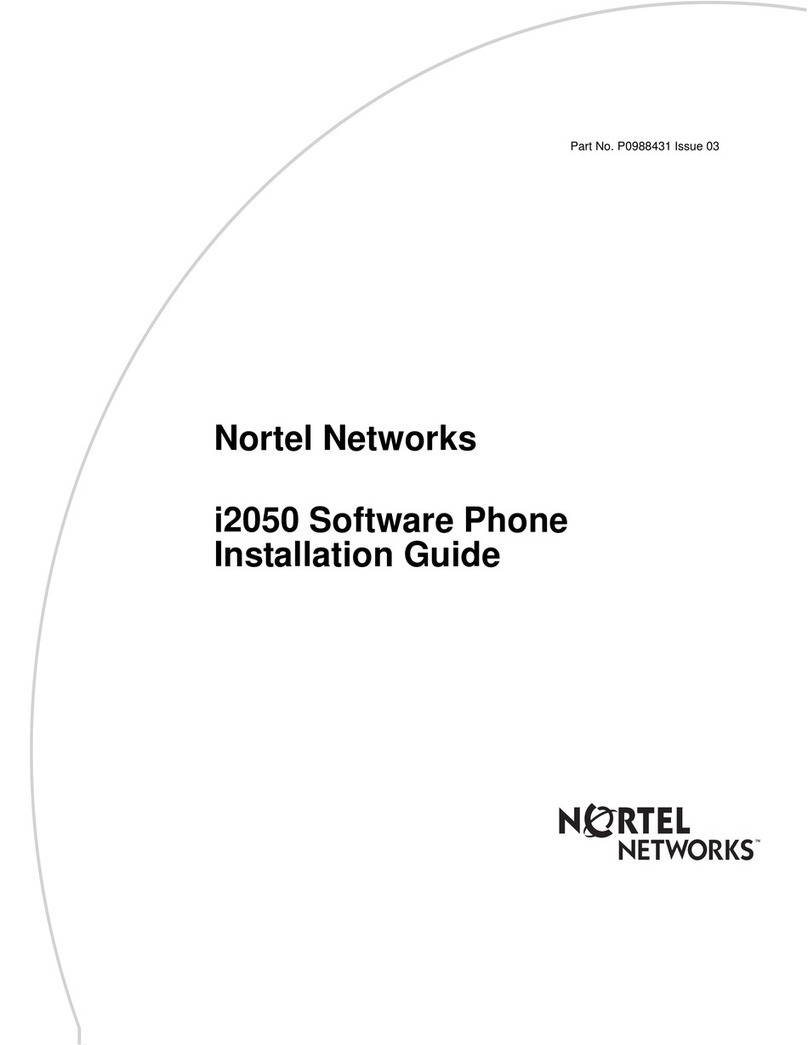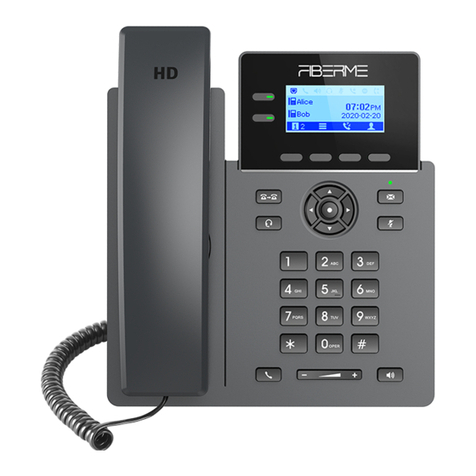
2 Avaya 3641/3645 IP Wireless Handset SIP User Guide June 2012
© 2012 Avaya Inc.
All Rights Reserved.
Notice
While reasonable efforts have been made to ensure that the
information in this document is complete and accurate at the
time of printing, Avaya assumes no liability for any errors.
Avaya reserves the right to make changes and corrections to
the information in this document without the obligation to
notify any person or organization of such changes.
Documentation disclaimer
Avaya shall not be responsible for any modifications,
additions, or deletions to the original published version of
this documentation unless such modifications, additions, or
deletions were performed by Avaya. End User agree to
indemnify and hold harmless Avaya, Avaya's agents,
servants and employees against all claims, lawsuits,
demands and judgments arising out of, or in connection with,
subsequent modifications, additions or deletions to this
documentation, to the extent made by End User.
Link disclaimer
Avaya is not responsible for the contents or reliability of any
linked Web sites referenced within this site or
documentation(s) provided by Avaya. Avaya is not
responsible for the accuracy of any information, statement or
content provided on these sites and does not necessarily
endorse the products, services, or information described or
offered within them. Avaya does not guarantee that these
links will work all the time and has no control over the
availability of the linked pages.
Warranty
Avaya provides a limited warranty on this product. Refer to
your sales agreement to establish the terms of the limited
warranty. In addition, Avaya‘s standard warranty language,
as well as information regarding support for this product,
while under warranty, is available to Avaya customers and
other parties through the Avaya Support Web site:
http:/www.avaya.com/support. Please note that if you
acquired the product from an authorized Avaya reseller
outside of the United States and Canada, the warranty is
provided to you by said Avaya reseller and not by Avaya.
Licenses
THE SOFTWARE LICENSE TERMS AVAILABLE ON THE
AVAYA WEBSITE,
HTTP://SUPPORT.AVAYA.COM/LICENSEINFO/ ARE
APPLICABLE TO ANYONE WHO DOWNLOADS, USES
AND/OR INSTALLS AVAYA SOFTWARE, PURCHASED
FROM AVAYA INC., ANY AVAYA AFFILIATE, OR AN
AUTHORIZED AVAYA RESELLER (AS APPLICABLE)
UNDER A COMMERCIAL AGREEMENT WITH AVAYA OR
AN AUTHORIZED AVAYA RESELLER. UNLESS
OTHERWISE AGREED TO BY AVAYA IN WRITING,
AVAYA DOES NOT EXTEND THIS LICENSE IF THE
SOFTWARE WAS OBTAINED FROM ANYONE OTHER
THAN AVAYA, AN AVAYA AFFILIATE OR AN AVAYA
AUTHORIZED RESELLER, AND AVAYA RESERVES THE
RIGHT TO TAKE LEGAL ACTION AGAINST YOU AND
ANYONE ELSE USING OR SELLING THE SOFTWARE
WITHOUT A LICENSE. BY INSTALLING, DOWNLOADING
OR USING THE SOFTWARE, OR AUTHORIZING OTHERS
TO DO SO, YOU, ON BEHALF OF YOURSELF AND THE
ENTITY FOR WHOM YOU ARE INSTALLING,
DOWNLOADING OR USING THE SOFTWARE
(HEREINAFTER REFERRED TO INTERCHANGEABLY AS
―YOU‖ AND ―END USER‖), AGREE TO THESE TERMS
AND CONDITIONS AND CREATE A BINDING CONTRACT
BETWEEN YOU AND AVAYA INC. OR THE APPLICABLE
AVAYA AFFILIATE (―AVAYA‖).
Avaya grants End User a license within the scope of the
license types described below. The applicable number of
licenses and units of capacity for which the license is
granted will be one (1), unless a different number of licenses
or units of capacity is specified in the Documentation or
other materials available to End User. ―Designated
Processor‖ means a single stand-alone computing device.
―Server‖ means a Designated Processor that hosts a
software application to be accessed by multiple users.
―Software‖ means the computer programs in object code,
originally licensed by Avaya and ultimately utilized by End
User, whether as stand-alone products or pre-installed on
Hardware. ―Hardware‖ means the standard hardware
originally sold by Avaya and ultimately utilized by End User.
License types
Concurrent User License (CU). End User may install and
use the Software on multiple Designated Processors or one
or more Servers, so long as only the licensed number of
Units are accessing and using the Software at any given
time. A ―Unit‖ means the unit on which Avaya, at its sole
discretion, bases the pricing of its licenses and can be,
without limitation, an agent, port or user, an e-mail or voice
mail account in the name of a person or corporate function
(e.g., webmaster or helpdesk), or a directory entry in the
administrative database utilized by the Software that permits
one user to interface with the Software. Units may be linked
to a specific, identified Server. CPU License (CP). End User
may install and use each copy of the Software on a number
of Servers up to the number indicated by Avaya provided
that the performance capacity of the Server(s) does not
exceed the performance capacity specified for the Software.
End User may not re-install or operate the Software on
Server(s) with a larger performance capacity without Avaya's
prior consent and payment of an upgrade fee
Copyright
Except where expressly stated otherwise, no use should be
made of materials on this site, the Documentation(s) and
Product(s) provided by Avaya. All content on this site, the
documentation(s) and the product(s) provided by Avaya
including the selection, arrangement and design of the
content is owned either by Avaya or its licensors and is
protected by copyright and other intellectual property laws
including the sui generis rights relating to the protection of
databases. You may not modify, copy, reproduce, republish,
upload, post, transmit or distribute in any way any content, in
whole or in part, including any code and software.
Unauthorized reproduction, transmission, dissemination,
storage, and or use without the express written consent of
Avaya can be a criminal, as well as a civil, offense under the
applicable law.
Third-party components
Certain software programs or portions thereof included in the
Product may contain software distributed under third party
agreements (―Third Party Components‖), which may contain
terms that expand or limit rights to use certain portions of the
Product (―Third Party Terms‖). Information regarding
distributed Linux OS source code (for those Products that
have distributed the Linux OS source code), and identifying
the copyright holders of the Third Party Components and the
Third Party Terms that apply to them is available on the
Avaya Support Web site:
http://www.avaya.com/support/Copyright/.
Preventing toll fraud
―Toll fraud‖ is the unauthorized use of your
telecommunications system by an unauthorized party (for
example, a person who is not a corporate employee, agent,
subcontractor, or is not working on your company's behalf).
Be aware that there can be a risk of toll fraud associated
with your system and that, if toll fraud occurs, it can result in

